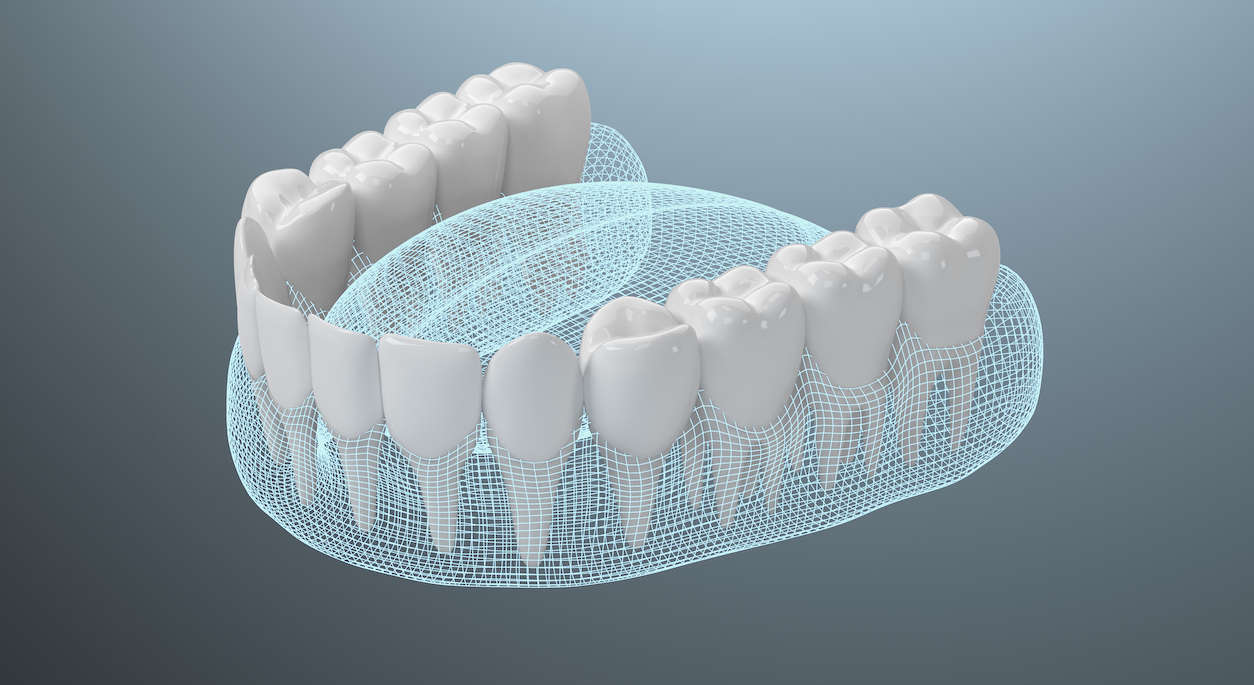Do you Need a Full Mouth Rehabilitation?
You may have heard of a full mouth restoration and wondered if you’re a candidate. There’s several prosthodontic procedures that can be used on their own or in combination to restore your smile to how it was. Some people choose to use a combination of procedures to completely makeover their smile and function.
What is a full mouth reconstruction?
A full mouth reconstruction is a series of procedures designed to completely transform a patient’s smile and function. It may involve replacing teeth, repairing damaged teeth and possibly correcting the jaw’s alignment to the extent that the smile is almost perfect.
A reconstruction can give a patient back their self-confidence and willingness to smile again. A renewed smile can also help with a patient’s general health. A mouth full of decayed teeth comes with high levels of bacteria and gum disease. Once the gum disease is advanced, the bacteria from the gum enters the blood stream and travels around the body. The bacteria can trigger blood clots which can increase the risk of heart attack and heart disease.
Some patients are candidates for a mouth restoration because their oral hygiene has been poor for a long time. This may have lead to bad breath, bleeding or ulcerated gums, receding gums and loose teeth, sensitivity and pain when eating or drinking. A full restoration may require teeth to be extracted and so the infection in the gums and mouth ulcers go with them.
Conditions that can be corrected with a full mouth restoration
There are several health and dental conditions that can lead to needing a full mouth reconstruction including:
Severe decay – in the early stages of decay, fillings can be used to save teeth but if the decay is left untreated, the teeth may be so badly damaged and discoloured that they need to be removed. After removing several teeth, a patient may be keen to fill the missing gaps. They have several options available for prosthetic teeth. If part or all the teeth can be saved, there is the option of covering the natural teeth with veneers.
Tooth loss – A tooth may have fallen out due to gum disease, poor dental hygiene leading to decay or the dentist may have needed to remove a damaged tooth. For many people, the gap reduces their self-confidence. Depending on which tooth/teeth are missing, their chewing function may also be impacted.
Injury – A serious injury such as a car accident or on the sporting field can cause the loss of several otherwise healthy teeth in a split second. Prosthetics may be needed to restore a person’s smile and confidence and allow them to return to a normal diet.
Teeth Grinding – A large portion of the population grind their teeth but thankfully few of us grind our teeth so hard that it wears them down excessively. A night guard can reduce the damage but those people who have been grinding their teeth for years without a guard, may need a makeover to save and restore their molars or replace them.
Poor bite – Malocclusion whether it’s an overbite, underbite or cross bite can impact the shape of a person’s face as well as the appearance of their mouth. If orthodontic treatment isn’t an option or not wanted, prosthodontics can help. A prosthodontist can provide patients with options for improving the appearance of their smile.
Acid erosion – Once enamel has been stripped from teeth, it doesn’t rejuvenate like most other parts of the body. Our diet plays a big part in the erosion of our enamel, but it also occurs naturally with age. Even thin enamel exposes the tooth’s dentin which isn’t as white as enamel, so teeth look discoloured. Some people choose to restore all of their teeth’s damaged enamel through a makeover.
Depending on the condition of the mouth a prosthodontist will recommend one or more treatments to give you the best outcome for a restored smile. A mouth restoration may include being referred to other specialists such as an orthodontist, endodontist or oral surgeon for additional treatment.
If you would like to know more, call (08) 9321 1632 or contact us online.

